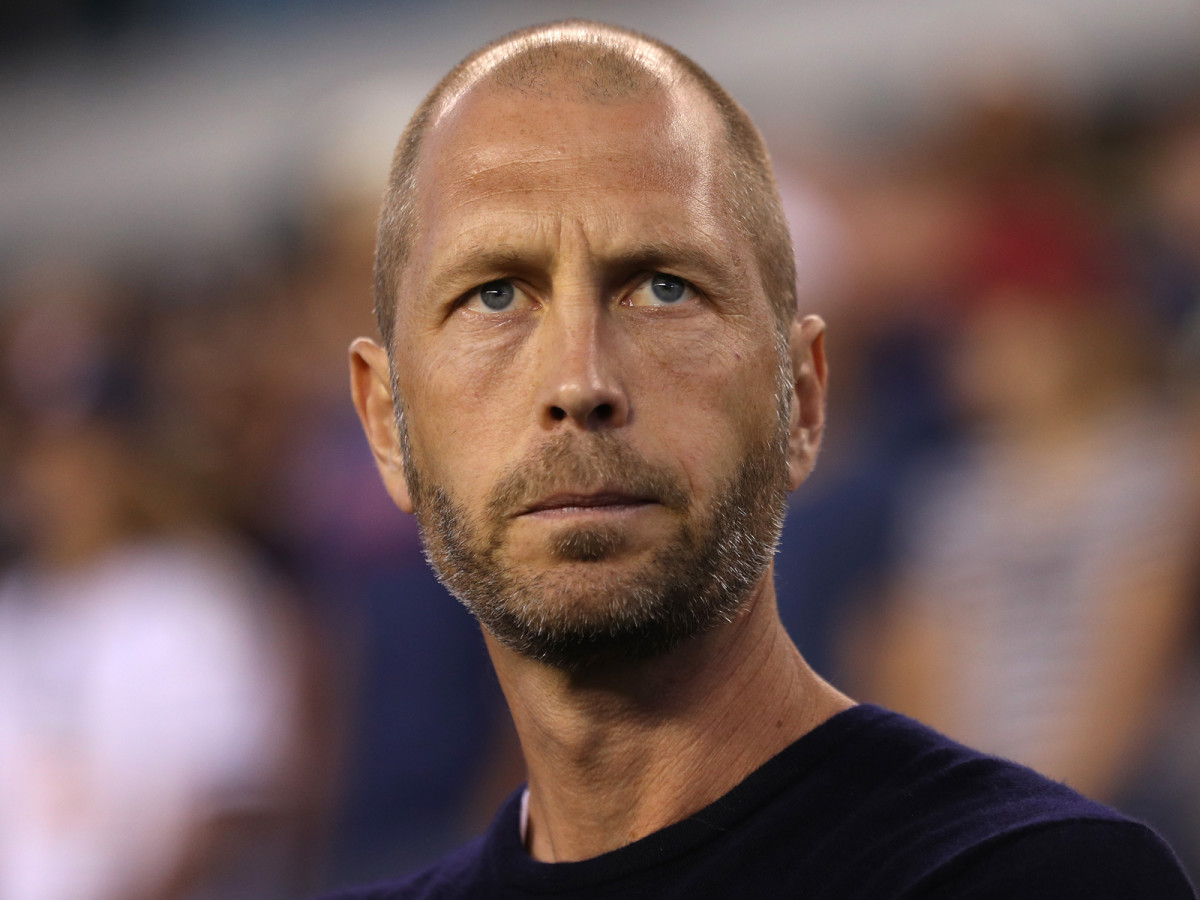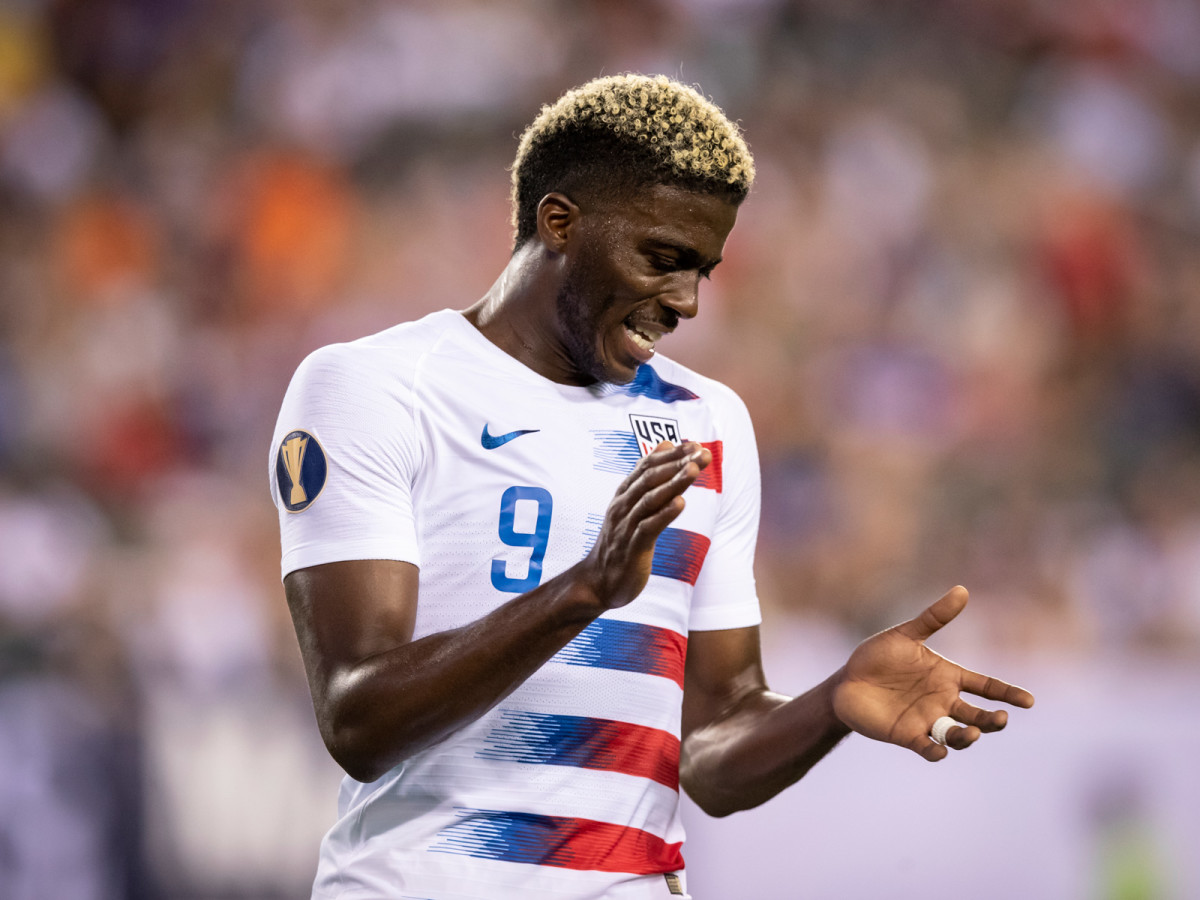There's No Denial Among USMNT Coaches, Players About Need to Be Better

PHILADELPHIA — Johann Cruyff said that “results without quality is boring.”
For those eager to see a rebooted U.S. national team bounce back from its humiliating failure to qualify for the most recent World Cup, results without quality frustrate rather than bore. There’s been a desire for something more than platitudes, promises and victory via fortunate bounce. U.S. fans and critics want something tangible and sustainable to believe in. They want to see an upward trajectory. They want to see their team play well.
Gregg Berhalter could sense that, even in the afterglow of Sunday’s Concacaf Gold Cup quarterfinal triumph. He was pleased, and perhaps relieved, to be moving on in his first tournament as U.S. coach. But in his post-game press conference at Lincoln Financial Field, the questions focused mostly on quality (or the lack thereof) rather than the result. The 1-0 win over Curaçao, ranked 79th in the world and appearing at that stage of the continental championship for the first time, was unflattering. And Wednesday’s semifinal against Jamaica, which defeated the USA in a friendly just one month ago, was just three days away.
“You guys wanted us to go out here and beat [Curaçao] 5-0, but we knew it was going to be a difficult game,” Berhalter said. “You look at all the quarterfinals so far in this tournament and in Copa América, they’re all tough games. They know there’s no tomorrow if they lose.”
He added, “We’re happy that we advanced to the semifinal. Despite the tone in here, we’re happy with the result of this game. That should be said. I’m proud of the guys for their effort, and now we move on to [the semifinal in] Nashville.”
Two truths can exist simultaneously. One is that you play to win the game. The USA (4-0-0) is unbeaten and unscored upon at this Gold Cup—in other words, perfect. Berhalter knows that a good performance against Jamaica (2-0-2), and perhaps a trophy at the end of it all, will render Sunday’s struggles moot. But it’s also true that results without quality are boring, or frustrating, and that people expect more from the U.S. national team than a skin-of-their-teeth win over a country with a population that’s about 1/38 that of metro Philadelphia.

Berhalter didn’t seem defiant, nor was he in denial. He was just acknowledging one of those two truths. And to his credit, he didn’t shy away from the other one. Looking for something tangible to hold on to? Maybe start with the fact that, unlike recent predecessors, Berhalter didn’t create scapegoats where there weren’t any, or ridicule those with questions or opinions. And neither did his players, who were looking forward to the semifinal but well aware there are facets of their game that must improve.
Jurgen Klinsmann would blame MLS, referees, individual athletes (or even their agents), the media for failing to educate the public, American soccer culture, tournament organizers and more. He believed the 2015 Gold Cup, in which the USA played poorly and lost to Jamaica in the semis, was fixed. Later, Bruce Arena stubbornly believed in his own genius and thumbed his nose at anyone with questions or concerns. Berhalter explained where Sunday’s game went wrong, and acknowledged his team needed to improve. What came away from Sunday is that to beat Jamaica, the USA needs to play better. Another takeaway from Sunday is that they know it.
“We had the opportunity early to put a couple goals in, and we didn’t do that,” Berhalter said of an early flurry that resulted only in Weston McKennie’s 25th-minute goal. “And we kept them hanging around. Then they were very compact and for us, it was about moving them out of position. Their midfielders were man-to-man against Weston and Christian [Pulisic], and our job was to move them out of position to now find Gyasi [Zardes] or find one of our wingers in the pocket. Especially in the first half, there were times when that came off and it was OK, and just times when there wasn’t enough movement to execute that.
“I think today, when they were very compact, I would’ve liked to play behind them more. I would’ve liked to have been more dynamic than we were,” Berhalter continued. “I think it’s about speed: speed of movement, having a mentality to turn their defenders, having a mentality to disorganize their defense, get behind their defense. We could’ve been more aggressive with that tonight, for sure.”

Zardes knows what’s coming. The striker, who has three Gold Cup goals but took only two shots against Curaçao, spent 2018 playing for Berhalter in Columbus. Instead of defiance or denial, there’s going to be video.
“We won the game. We’re on to the next round. Honestly, I think it was a great performance as far as those objectives we reached,” Zardes said, acknowledging the first of those two truths. “The coaches here are very detailed. They’re going to watch the film. They’re going to watch the game, and I’m curious to see what they have to say about it because they know the game better than a lot of us players and they help us see the game [how] they wanted to be seen as. I’m extremely excited just to hear their feedback on today’s performance.”
What they’ll likely see is a U.S. squad that played too much of the game on the back foot, abandoning the press rather than adjusting it and allowing Curaçao to gain confidence with the ball and dictate tempo. They’ll see Zardes, Pulisic, Tyler Boyd and Paul Arriola fail to consistently make the sort of runs that might stretch or unsettle a defense. That static display adversely impacted McKennie and Michael Bradley, who often lacked passing options and struggled with distribution. If not for goalkeeper Zack Steffen’s leaping save in the 84th minute, unheralded Curaçao would’ve taken the Americans to extra time.
“Not every game is going to flow perfectly. There were some difficulties today,” said Pulisic, who wore the captain’s armband for the second time and hit the cross that led to McKennie’s goal. “Curaçao did a really good job when they had the ball, They were very calm. They were very calm with the ball. They moved it really well. They built out of the back well. They made us defend a lot and it was tough. Like I said, in the end, we need to finish more chances towards the beginning of the game to make it easier on ourselves, but we’re on to the next one.”
Speaking moments after the quarterfinal concluded, Pulisic added, “We know what we need to work on. Like I said, today wasn’t exactly our day. Everything didn’t flow as it did in the last few games offensively. But we’re going to find that rhythm. Today, if we score a few more goals early in that game it’s a completely different game.”
Other U.S. players passing through the mixed zone took a similar approach. They were pleased they had another game to play and another opportunity to be better.
Defender Aaron Long said, “We know it's not our best, for sure. To still get a 1-0 win, to still get a shutout and move on in the tournament, it feels good and it’s something we can build off of.”
Bradley added, “The importance on a night like tonight is getting through to the next round. So that part, everybody feels really good about. Obviously, we’ll look closely at some things and makes sure we understand some things that can be better as we move along here.”
McKennie said, “It wasn’t one of our best games. But we’ll definitely look over it on video and see what we can do better and see how we can improve for Jamaica.”
The USA flew to Nashville early Monday to get a start on recovery and preparation for the Reggae Boyz. Silver medalists in each of the past two Gold Cups, Jamaica always plays the Americans close.
“We knew its going to be a good game,” Berhalter said. “We know Jamaica’s a good team—a very robust team. We know they have some good attacking pieces, and our job is going to be to break them down and really take advantage of some the spaces that we see being available.”
The USA couldn’t do that against Curaçao. Knowing that, and having the willingness to look at why, could be the key to figuring out Wednesday.
